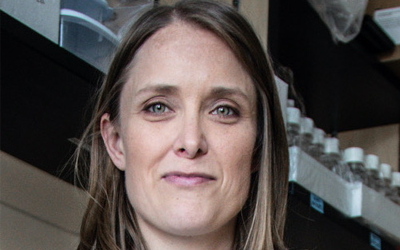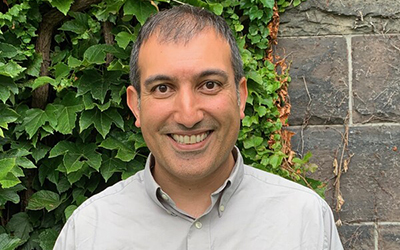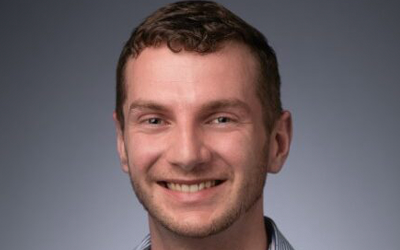Dr. Lisa Julian, Simon Fraser University
Scholar Award, $112,500 over 5 years (co-funded through a partnership between Michael Smith Health Research BC and Parkinson Society BC)
Project description:
Dr. Lisa Julian studies how genetic mutations that cause disease, particularly those that lead to rare cancers and neurodegenerative disorders, affect the form and function of the brain. Specifically, her lab at Simon Fraser University in Vancouver is dedicated to understanding how genetic diseases impact the human brain as it first develops. Since our brains are so complex and inaccessible, it seems like an impossible task to study them; yet her group is able to address these questions by producing and growing miniature brain tissues in the lab, impressively from stem cells that are derived from actual human patients.
Their work to date has harnessed these miniature brain models and developed new technologies that allow them to reproducibly analyze the brain in its earliest form, as it develops into a small and primitive neural tube. Surprisingly, their analyses revealed that cellular organelles called lysosomes and pathways that regulate protein and metabolic signaling are heavily altered by rare disease mutations during this critical stage. The overall size of the brain and the cell types produced are also heavily affected. Thus, what their findings have suggested is that mutations that lead to neurodegeneration, and conversely rare low-grade tumour development, impact the brain as soon as it starts to form.
Altered protein homeostasis and metabolic processing are known to occur in degenerative brain disease like Parkinson’s and Alzheimer’s disease and are hypothesized to underlie the eventual loss of neurons in affected patients. However, Dr. Julian’s work has opened unchartered territory by revealing that these processes are altered during the earliest stage of brain formation and that they may set the stage for the development of abnormal neural networks and eventual neuron degeneration, well before clinical features are apparent in patients.
Dr. Julian grew up in Ontario Canada and moved to BC to open her research lab five years ago, with the intent of uncovering critical mechanisms that underlie the pathology of rare brain diseases. She is thrilled with her lab’s successes to date and looks forward to deepening their research into altered protein and metabolic signaling in the brain to uncover new therapeutic avenues to help prevent and reverse the neurodegenerative process.







